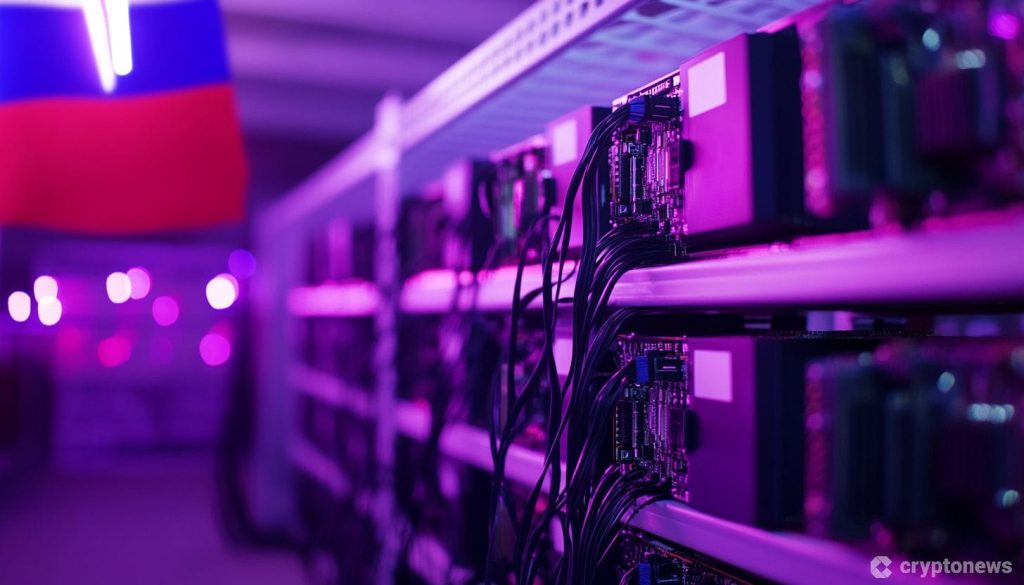A Russian Bitcoin mining industry leader, Sergey Bezdelov, has reported that industrial players in the country mined 54,000 BTC, equivalent to around $3 billion, last year. During a crypto mining-related session at the Eastern Economic Forum in Vladivostok, Bezdelov mentioned that the industrial mining sector is expected to bring in an annual tax revenue increase of 50 billion rubles ($559 million) to the Russian Treasury. He also noted that big businesses are showing interest in supporting industrial miners, which will lead to investments in new data centers and equipment. This influx of cash is expected to result in higher wages, improved sector structure, and the creation of new job opportunities in the IT field.
Beginning on September 2, Russian crypto mining players are required to register their operations with a central regulatory body and will need to pay taxes on their earnings at the end of the financial year. However, the specific taxation policies for miners have not yet been finalized. The Central Bank is advocating for miners to immediately convert their earnings to fiat rather than holding onto them in crypto wallets to wait for better market prices. Starting in November, legal entities and individual entrepreneurs listed on a register maintained by the Ministry of Digital Development will be permitted to engage in mining activities. Private Russian Bitcoin miners can also continue their operations while adhering to new electricity usage quotas.
Bezdelov and other industry experts have indicated that the majority of industrial Russian crypto miners focus on Bitcoin mining, with approximately 90% of them concentrating on this cryptocurrency. A smaller portion of industrial miners opt for Ethereum and high-cap altcoins like Litecoin. Bezdelov previously projected a potential $4 billion expansion for the Russian Bitcoin mining industry, but cautioned against imposing exorbitantly high tariffs on miners that could hinder their operations. The focus appears to be on ensuring sustainability for miners while also driving economic growth through increased investments and job creation.
The Russian government’s implementation of new regulations and taxation policies reflects the country’s efforts to formalize and regulate the crypto mining industry. By requiring registration and taxation, authorities aim to bring transparency and accountability to the sector, potentially increasing tax revenue for the government. While the specific taxation details are still being determined, the move towards legitimizing and supporting industrial mining activities signals a shift towards a more structured and controlled environment for cryptocurrency mining in Russia. The government’s decision to allow private miners to continue their operations within set limits demonstrates a balance between regulating the industry and maintaining opportunities for smaller-scale miners to participate in the market.
Bezdelov’s optimistic statements about the future of the Russian Bitcoin mining industry suggest a positive outlook for growth and development in the sector. With the potential for increased investments, improved infrastructure, and job creation, the industry may experience significant expansion in the coming years. By focusing on Bitcoin mining, industrial players in Russia are aligning themselves with a profitable and well-established cryptocurrency, while also keeping an eye on potential developments in other altcoins. As the industry continues to evolve and adapt to changing regulations and market conditions, Russian Bitcoin miners are poised to remain key players in the global cryptocurrency mining landscape.












